Cyberpunk 2077 is a game that I should not be writing about now. It’s a game that should have been delayed until the development team were ready to ship, not management. A game so hyped and advertised as the next leap in open-world role-playing, proudly sporting the Cyberpunk name and brand, is merely a vague attempt at ambition and a clear indication that there is a larger issue within video games that needs to be addressed.
Story, Alternate Outcomes, Racism
You play V, an upcoming merc who meets Jackie after a gig has gone awry. In my case, I was stealing the same car as him and got caught. Turns out both V and Jackie have similar aspirations and set out to conquer Night City from the ground up.
After a brief montage of events, you’re thrust in Jackie’s latest scheme: working with the legendary fixer, Dex DeShawn.
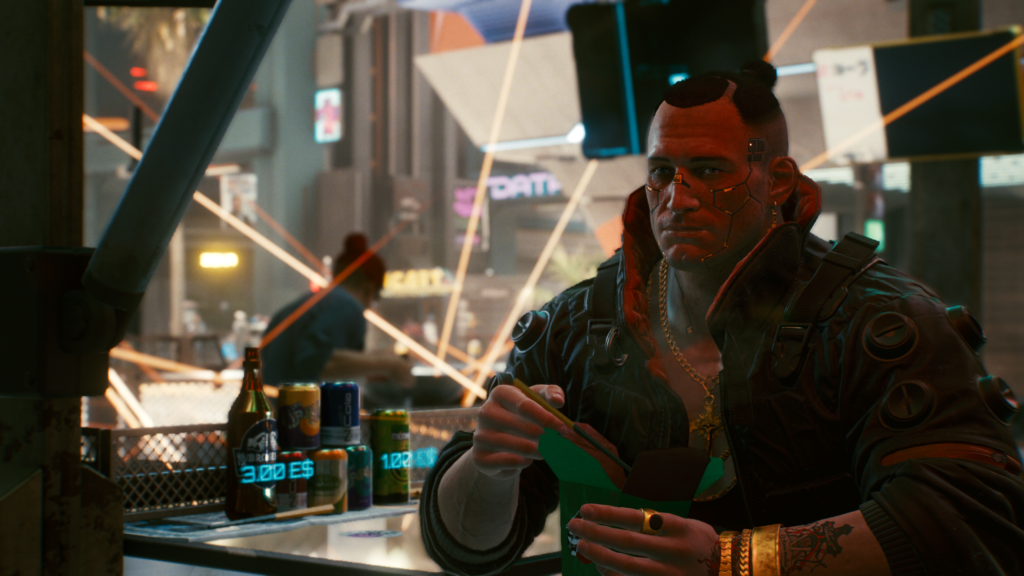
This stuff is good stuff. It’s filled with the bullshit heist setups that I like and really shows off the game’s systems to mask the transitions between choices made. You might end up at the same point, but the dialogue varies between each interaction depending on what actions you took. This is about the most the choice system has an effect on the overall story, but we’ll get to it.
The heist you go on is for a biochip, currently in possession by Cyberpunk’s regular villain, Arasaka. Things go south and Jackie gets hit, dying in the getaway vehicle. The chip’s container is also damaged and to keep it going, has to be slotted into V or everything will be for nought.
CDPR obviously wanted the Jackie dying moment to be a big thing. You’ve spent the better part of six hours with him, but the issue is, those six hours have not built a character, but a vehicle for an attempt to elicit feelings.
I don’t know who Jackie is, outside of the fact that he’s a crook with a heart of gold. He’s nothing. Mostly because the montage of what you assume is to get to know him happens so fast and has such little information in it, that killing him off is entirely useless. Everything surrounding his death afterwards, like going to his funeral and looking through his stuff to find out what kind of person he is, feels like regret that they didn’t expand the character when they could have done.
This halting of characters and stories to quickly move onto the next thing is a motif the game, unfortunately, takes on for some of the other quests and stories the game has to tell.
The only character this doesn’t apply to is Johnny Silverhand, Keanu Reeves’ character who is pretty much the only one that never flipped out via glitches on me – nearly.
Johnny is trapped on the biochip and after V is shot dead, it kicks into overdrive and begins eating away at V’s brain to replace it with Johnny – the intended purpose of the chip.
From the outset, Johnny is upset about being trapped and V scared about dying. They butt heads over decisions, with Johnny acting as the devil on your shoulder through most interactions, chiming in with his cynical thoughts wherever you go and you know, it’s often really great.
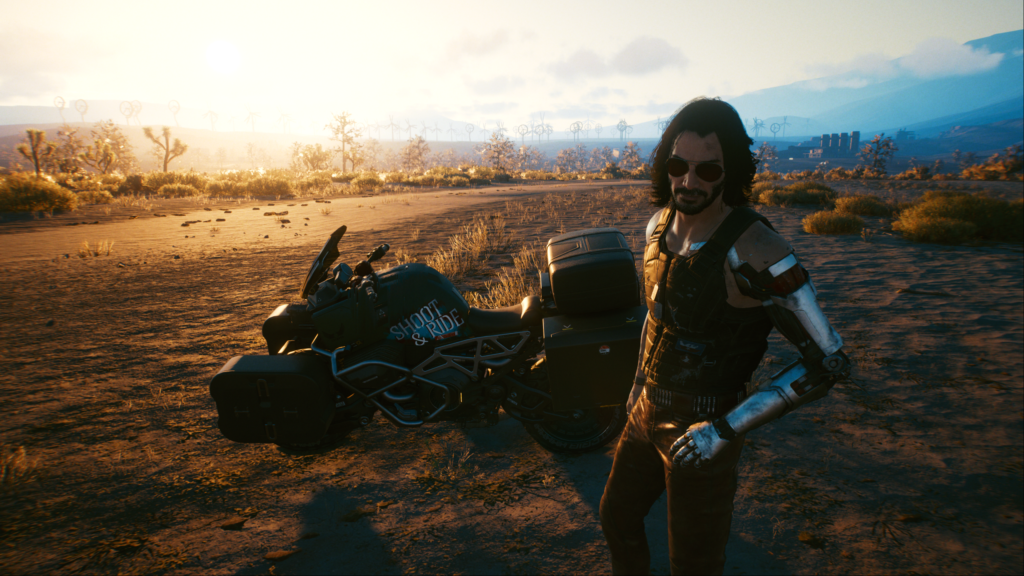
Keanu Reeves is not the best actor. His range is limited and I think he knows that, even while playing Silverhand. He’s not a mean spirited person and this absolutely feels out of his comfort zone, where he’d be more fitting to a softer character, but as the game progresses, that begins to melt away – especially as they begin to write Johnny as a more sympathetic, but stubborn, guy.
Credit where credit is due though, for both Reeves and CDPR, that he hasn’t cursed this game with the Kojima Effect. Casting a high profile actor and then they’re barely around for the length of your game. Sure, Johnny is not always around and in some quests barely shows up, but he’s in it for the long haul when needed and is a great foil to the more mensch-like V.
The story of V, your dot-to-dot picture to complete, is one of success and failure within a world that no longer cares for you. It is not particularly deep, but the main questline has enough slingshot and whiplash moments of sending you one way, only to rip you back with the casualness of a few sentences.
It really shines in the side-quests though. These little pockets of the story all come with the various spins and roundabouts that the main quest does, just without any of the ‘V is gonna die soon’ agency. Characters really begin to get really developed in ways that I didn’t expect after the abrupt introduction and death of Jackie in the game’s first few hours.
River, a cop who is investigating the disappearance of his nephew drew ire from me personally – there’s a brilliantly tone-deaf line of ‘not all cops are bad’ in a game, written and released in the last couple years – but eventually as he events play out, whenever he cropped up I always rushed to his aid because the story told genuinely had me. Not because ‘cop story’, but because it begins to morph into a scary take on crime in a cyberpunk environment.
Nearly every story thread captivated me for however long it went on for. It’s just a shame that the only consistent thing among them is that they end abruptly and some without any satisfactory conclusion. Not even like a potential ‘cliffhanger in resolved in DLC’ scenario, just the book closes as the going gets good.
A story about politicians investigating the murder of the previous mayor and weirdness going on with their security team just ends with a few flecks of story meat thrown your way in the credits.
However, as the game’s stories are good, they fall into issues surrounding Cyberpunk as a series of games and fiction, as well as the genre as a whole. Whether intentional or not, the game is racist and this stems from a westernised, predominantly white viewpoint on the world.
It’s a case of the Japanese and Asian cultures that have long been part of the American landscape are still seen and presented as ill-fitting pieces in the overall final picture. The Tyger Claws, an established Japanese group speak entirely in Japanese or thick, heavy accents. Considering America’s history with Asian culture, especially Japanese immigration dating back to the 19th century, you’d think that there’d be someone without that stereotypical accent to interact with whenever you kill a group or get mixed up with them.
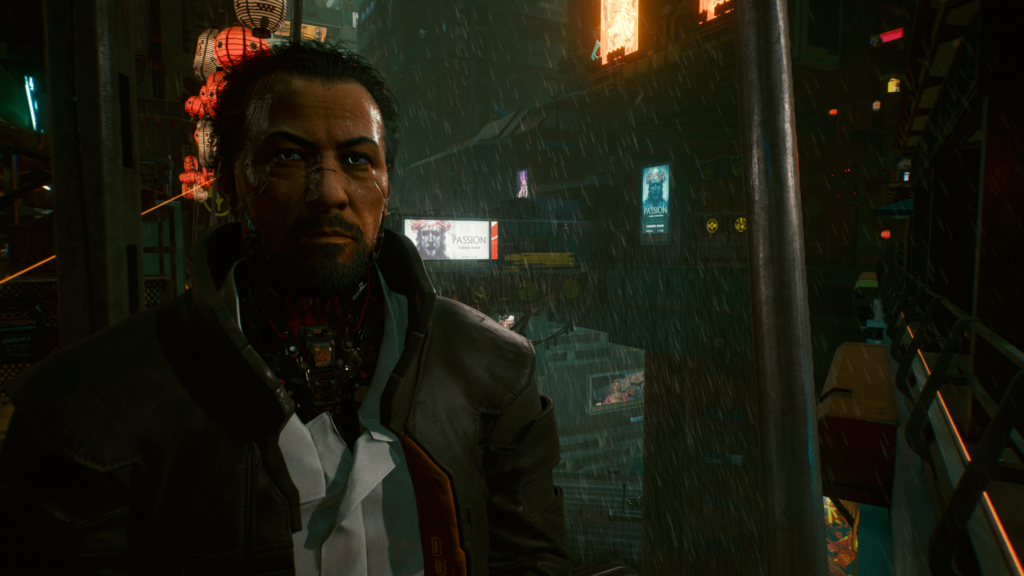
There’s also the case of the Voodoo Boys, a group that has taken the name of off Cyberpunk 2020’s group that was made up of mostly white people obsessed with netrunning in a similar way of seeing it as ‘voodoo’, with them being used to highlight cultural appropriation.
Here, with so many years since 2020, the Voodoo Boys are now a group of Haitian refugees, set up in Pacifica, a derelict, abandoned and half-built resort that was abandoned by Night City due to a lack of funding. It’s almost anarchic in nature, cops don’t go there and is now home to a myriad of people revolving around the Voodoo Boys.
It seems that they’ve done a great job at representing Creol, but something always feels off and it’s something that the game continuously does over and over:
It never tackles what it presents. You get the baseline gist that the reason these victims of global warming (Haiti for some reason has sunk into the ocean?) are now in this futuristic American poverty because of a lack of care. It never once digs any deeper. A few lines of dialogue here, environmental storytelling there, but never the needed stab that cyberpunk as a genre is supposed to utilise.
There’s zero commentary via the fiction on the state of the world. In fact, a majority of the in-game advertising and seeming focus of CD Projekt Red’s take on Cyberpunk is that focused on sex, drugs and guns. For a story built on transhumanism, death and the future, it rarely even touches on these concepts outside of utilising them to progress the plot in the sci-fi confines.
And what it does focus on is embarrassing. Like, this is stuff I wouldn’t even expect from the pits of the mind of a horny teenager. If the trio of choices of ads to see in the game wasn’t limited to just this, it’d be fine. But it is constant. All the time. They’re not even good at the critical analysis of ‘sex sells’, it’s cringe-inducing in a bad way.
The multiple sex scenes you can experience are awful too. They feel as if they’ve been directed by someone who has the most boring sex but thinks their wild.
Everything it presents, including the enjoyable stories, never say anything at all. It’s a vast, complex web of things to say, see, experience and it is as a baseline as it can possibly be.
I wonder if it began digging into the nuances of corporations, PR, futurism, poverty and capitalism, all things that Johnny Silverhand abhors, yet rarely gets into anything deeper than “they fucked us over” is a strategic move?
If you surface yourself to your audience while being critical of your business, would it backfire and land you in the hot water you’re currently facing?
Combat and Things to Do
Cyberpunk 2077 presents itself as a large, open-world with a myriad of things to do within Night City. From taking gigs from the various factions that litter the city to enjoying the day-to-day. Or at least that’s what the introductory montage suggests at the start of the game.
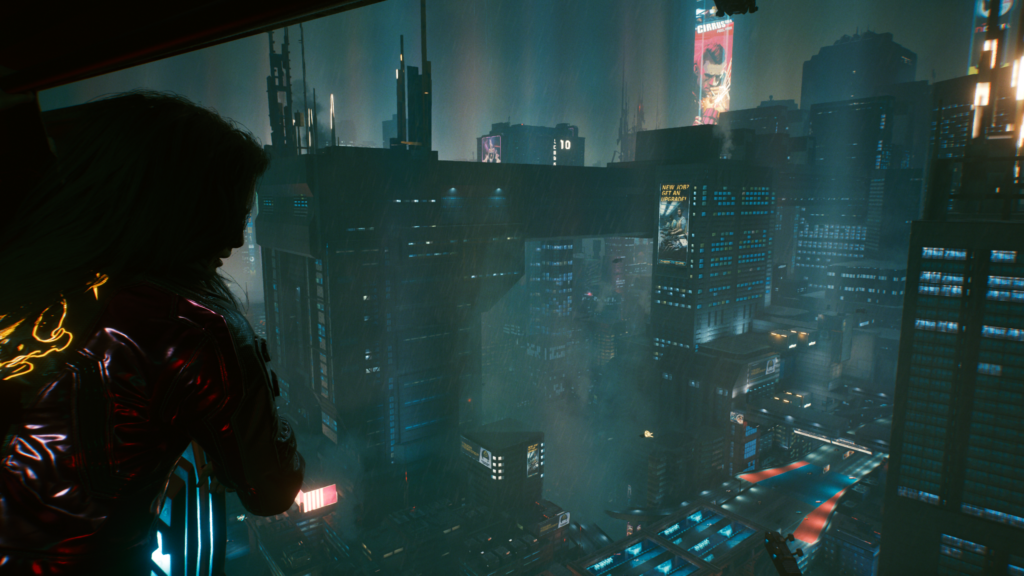
From here, it’s a meagre pittance of offerings, mostly ranging from being told to kill someone or talk to someone. Sometimes when traversing the uniquely brilliant looking, but ultimately dead city, you’ll have the option to kill people doing some crime.
This would be okay if the combat was at all any good. It isn’t. I’ve seen Reddit posts of people saying that the combat is fine, showing off moves and bunny hopping of a high-level character, but the real truth is you have to properly exert yourself and go out of your way to ensure that the game is remotely ‘fun’ or engaging during any combat segment.
It should be a tense moment when a massive mech that can pulverize you into a million tiny pieces with just a couple seconds wind up enters the fray, but it’s just a numbers game. The tension of a world that could kill you with a ‘stray bullet’ at any time – as they keep harping on about – is taken away as the health bar at the top of your screen and all enemies take precedent.
When it works, combat generally just boils down to staying in cover or hidden for as long as possible for you to shoot or use ‘quickhacks’ to down your foes. There’s little reason to use the slide and when I upgraded my character with a host of different augments (like slow motion when caught, extra health due to being given harder skin), it made little to no difference on the overall experience of being caught up in a monster firefight with someone suffering from cyberpsychosis or sneaking my way into a warehouse to upload a virus.
Even when going heavy on stealth, there are very little options for going in without even touching someone. Guards stood forever in front of computers, destined to aimlessly wander the same path or sit in an animation they won’t leave until they expressly notice you. The only way to get by is to take them out.
This certainly harkens back with the Cyberpunk tabletop RPG, where it’s encouraged to be violent, but in the confines of a video game supposedly offering multiple ways of completing a task, having to creep on dudes until you get caught and have to go loud becomes boring.
It doesn’t help that in the 1.04 version I played, the enemy AI for when I went stealth during particularly enemy heavy moments, was so thick that it didn’t matter how I tackled them because of their tunnel vision. Seriously. In 2020, I’m looking at vision cones in a massive AAA game?
Every boss fight I encountered in Cyberpunk 2077 was horrendous. Large, hulking, spongey enemies that do nothing remotely interesting in a way that’s actually laughable. This kind of effect also mirrors onto the regular enemies you fight, who all just do the same thing, regardless of faction. Even those who can hack you pose little difference in combat, as it never really matters in the grand scheme of things.
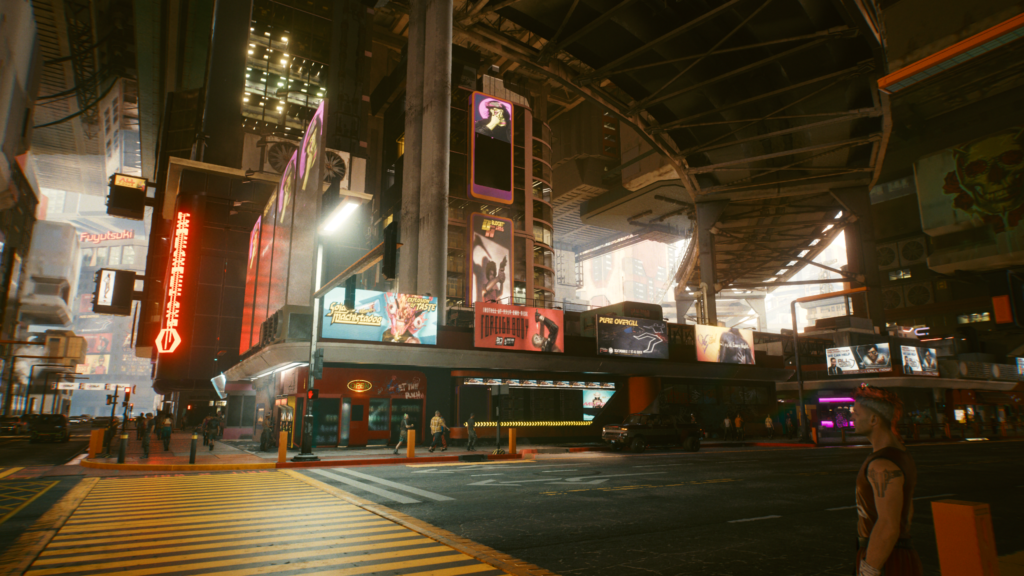
You’ll rarely find yourself thinking strategically, as hovering a mouse over someone and watching the numbers fly out, while you pump yourself full of the hundreds of health items that litter the place doesn’t provide you with the need to.
Driving sucks in this game. It sucks and it’s weirdly bad. Cars feel heavy, unwieldy and because the game is so inherently broken, completely untrustworthy. Bikes a little better, as you can avoid traffic via weaving in and out, but you still need to give everything a wide berth if you decide to turn.
I built my character around guns, tech and hacking, with some points into ‘body’ (strength/health) and crafting. It’s my preferred method of playing games of this ilk, as it mostly leads you down the paths of being able to open nearly any door or interact with any computer.
After a few missions, I began to notice that computers were almost entirely useless, harbouring the same emails and rarely having a connection with the system security that I’d prefer to disable. While I’d feel the satisfaction of dedicating points into opening doors in various ways, any time spent trying to get embedded into the technical side of the world always felt profoundly wasted until the very last few hours of the game itself.
Netrunning
A big portion of what I enjoy about Cyberpunk isn’t the augments, the violence and slang, but the aspect of ‘netrunning’. Jacking into a data port, experiencing another world to aid in your quest against the corps.
A favourite card game of mine, Android: Netrunner from Fantasy Flight Games (may it RIP) had you duking it out between Corp and Runner, aiming to disrupt laid out plans while protecting assets or your meaty sack of flesh that could very easily be fried.
Even in the card game space, you got the feeling of the ‘net’ is a bigger place than it lets on. ICE and your ‘grip’, hacking taking form of viruses that had virtual bodies and personalities to match their abilities, while also dealing with ‘meatspace’ and the physical actions needed to ensure that you won.
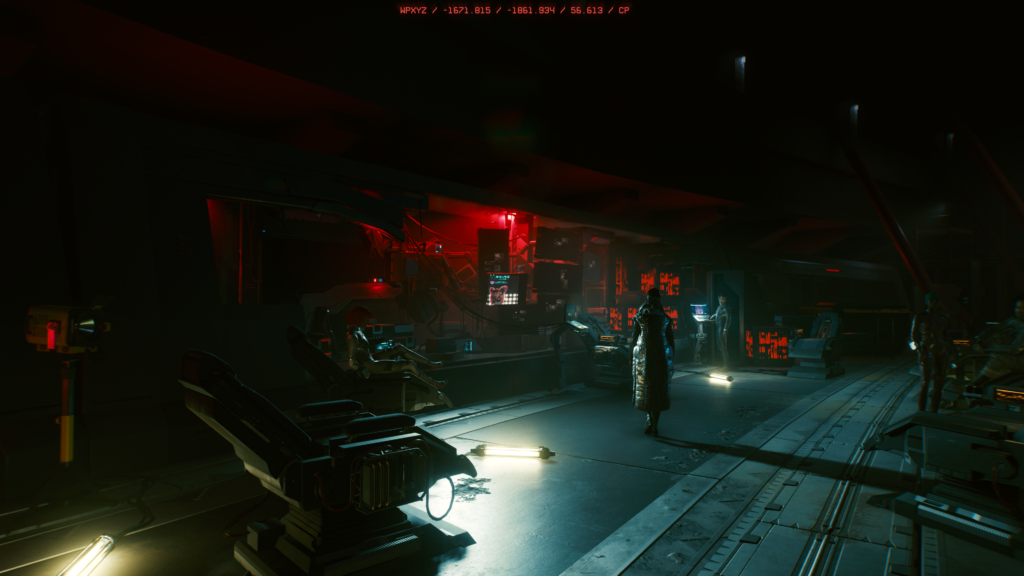
Cyberpunk 2077 only flirts with Netrunning. Hacking is a dreadfully dull match-the-numbers game or ‘quickhacks’, pulling from Cyberpunk’s world that has seen ‘the net’ become isolated outside of local connections, a simple menu where the game slows down as you decide which ability to choose.
It doesn’t matter if you’re a nomad, street kid or from a corp background, netrunning is seemingly lukewarm and only used for story sequences. You’ll never see the coolest side of the Cyberpunk lore because the game only ever glances over briefly for a guided tour.
This means you’ll disrupt security systems by finding the one laptop and simply turning it ‘off’, instead of dealing with meatspace and then jacking in to make your run, hoping you don’t fry yourself in the process.
Quickhacks also only really begin to get useful as you progress through the game. Even very basic hacks like ‘Short Circuit’ and ‘Reboot Optics’ feel limp, giving me the impression that I had to rely on my gun skills while I waited for the game to catch up and provide me with quickhacks that’d deal any damage to make them worth a damn.
The two Deus Ex games that came out, Human Revolution and Mankind Divided, provided a better netrunning experience and never even directly comes close to that of the Cyberpunk board game or the Netrunner card game. Even with its simplistic take on viruses and hacking, it was far and away more enthralling than… this.
If you want a more realised look at hacking and netrunning in a cyberpunk world, I’d highly recommend the Shadowrun Returns series of games, which set aside the fantasy aspects of that world, is far and away the best way to ‘netrun’ in a game so far.
It’s just another path of violence. The quickhacks don’t net you any additional stuff other than XP and a hopeful swift death so you don’t have to deal with the sniper who has you in their sights the moment you pop your head up.
Choices Don’t Matter
CD Projekt Red have a knack for storytelling and masking the variations, but what I’m noticed in Cyberpunk 2077 is that they absolutely had the twists, turns and roundabout kicks of realisation down to a tee, they failed with choices.
Cyberpunk 2077 encourages you to be yourself, mould V into the person you want to see in this grim world. However, outside of very few key conversations, nothing matters. The outcome might have three options at one point in missions or quest lines that’ll divert it one way, but it consistently feels like you’re playing someone else’s character and each option leads you down a very funnelled path.
While the game is excellent at masking certain outcomes or events as player choice, like the Maelstrom sequence, where you go to pick up a device for your fixer, the person you’re working with. (Think of them as the middle man between client and merc) The device has already been paid for, but as far as I know, the previous leader who got paid is now dead and the new guy once more cash.
I didn’t have the eddies. I blew his head off and made off with tonnes of new enemies and a handy device for the upcoming heist.
A friend of mine had a vastly different experience, getting involved with the company who makes the device, Militech, erasing the chip they’d put a virus on and ratting Militech out to Maelstrom to get them on their side.
It eases the transition between these choices flawlessly during these high stake moments. A character supposedly dies during a raid and Johnny Silverhand tells V to get out. I didn’t even know I could search for him.
However, these are but just a few of the good examples. CDPR’s previous game, The Witcher 3, lauded for having a murky set of options within the dialogue options, might have also funnelled to the same singular path, but it was never as obvious.
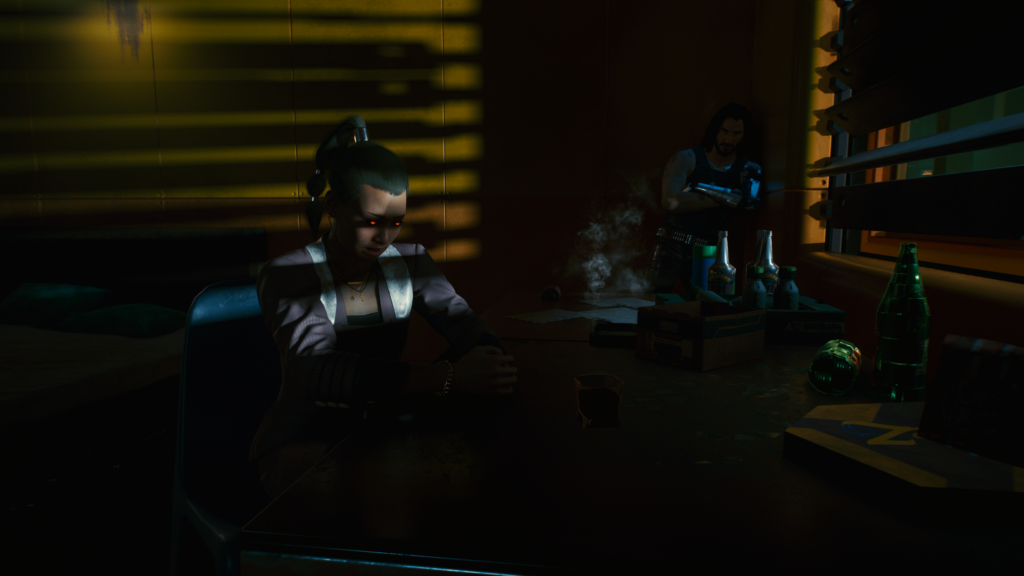
Speech checks rarely crop up to lock off dialogue options that’d progress the plot, meaning your background and points make little to no effort to do much other than expand on the given predicament with lore. At no point did my Street Kid background ever work its way into a story decision, instead of this person who grew up on the streets of Heywood and has his ear to the ground of Night City, with a ‘cool’ rating of 4/5 or technical ability of 11 ever use this to advance things, only to give me, the player, another option at discovering bits and pieces about the world.
This is egregiously on display at the very ending of the game. Like, this is precisely what Mass Effect 3 did and was ravaged for. You’re given some choices of what to do at the end of the game. Do you take the advice of the daughter of Soberu Arasaka, Hanako and follow her lead in helping you get rid of the Johnny Silverhand inside your head? Do you let V and his newfound friends in the Badlands take on Arasaka Tower? Or do you allow Johnny Silverhand to take the wheel, allowing him to put an end to what he started 50 years ago? Once this is done, do you send Johnny or V into the net forever, allowing one to take back the body they’ve been unwillingly fighting over?
Well, it doesn’t matter, as the game does the classic thing that we all hoped we could move on from and sets you back before the point of no return. The world is reset to allow you to carry on experiencing it with nothing changed and even worse, all that you potentially agonised over on the roof is simply just a hop-skip-and-jump to redo the final mission to see everything. Nothing is final. No choice you make matters. You can experience everything and the guise of crucial decisions is just a large con.
It honestly makes me wonder why this is in here, other than that CDPR is now known for making player-driven, interactive narratives with branching paths.
Big Games, RPGs
Here’s the thing. Whenever Cyberpunk 2077 became linear, a little more focused, it became a better game. Silverhand’s sections that are essentially a shooter, are fast-paced and genuinely thrilling. Why? High damage output makes the guns feel impactful.
During the heist with Jackie, even if it broke entirely during the fight with the mech, was focused and clear, concise. Small bursts of action, with an environment that felt like it could be a little more open if built upon. Even better, the opening mission with Jackie – that acts as the tutorial – that has an A to B to C type of momentum was far better because it was a closed-off section of the game.
What I’m saying is, Cyberpunk 2077 would have worked better as a linear game. All the story threads and things to do could still be there, but the moment-to-moment gameplay in the massive open-world feels old, mouldy and in the way.
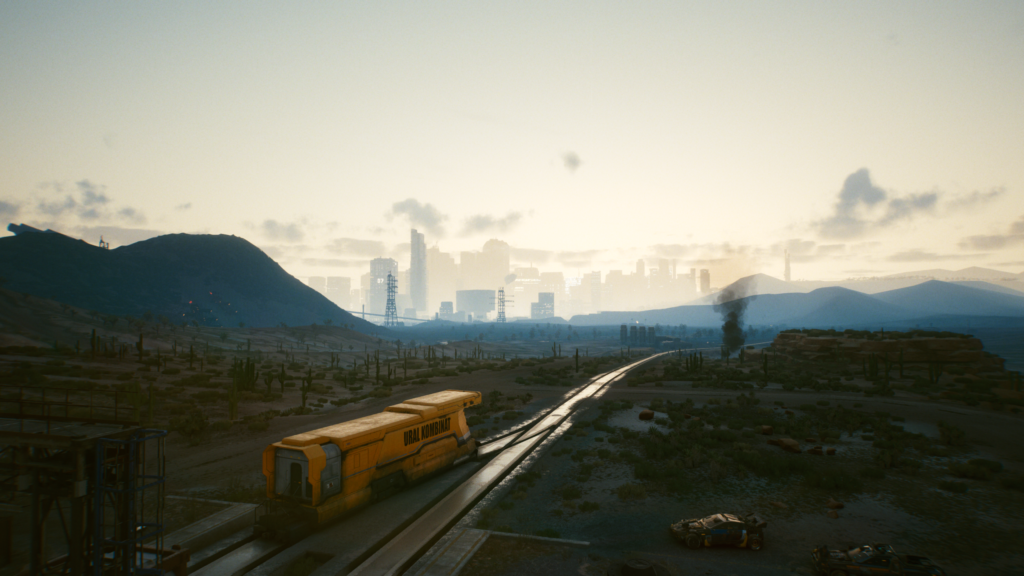
Rarely does the city feel useful, like its aiding in anything other than background noise for the sake of having an uber large city. But it feels as if CDPR have backed themselves into a corner here. Everything has to be bigger, better than the last game than every other game on the market.
And it stinks.
Faster paced, tighter combat, focus and less time spent on trying to force something that clearly isn’t working would have gone a long way to tell the tale of V in Night City. Entire sequences feel like they’re hamstrung by the restrictions of everything having to play by the rules that have to also dictate the open world, leaving big moments to putter out as you’re left to just saunter into something, rather than be thrust into the next big thing.
This is also an issue with the RPG-ification and trying to justify themselves to the audiences. Hundreds of hours of gameplay should not speak to a person when it is as flaccid as it is in Cyberpunk 2077. Give me a solid 10-hour campaign with a tight, neat story that actually does something to my brain, rather than presenting me with just more and more numbers, skill trees and a laundry list of stuff to do. I have these. If I wanted this experience, I’d go to Final Fantasy XIV and have it done well.
Glitches
CD Projekt Red clearly did not have a grasp on Cyberpunk 2077. For as much as I’ve skirted around the issue of it, the game is a buggy mess that consistently breaks in new and various ways each time that I loaded into it.
Sometimes a game will be buggy or glitchy in ways that can produce funny moments. People have already begun to milk the teats of Cyberpunk 2077 and boy, every time something comes up, I might not have seen it happen before.
However, while games like this – namely Bethesda games – can have game-breaking bugs, very rarely have I experienced a game that just routinely broke itself with no way to progress other than to reload and hope for the best.
First time meeting Johnny Silverhand? Stuck on the bed.
The game can’t find the subtitle files for the Polish language, even though I’m playing in English.
Constantly, story beats ruined by excessive calls or characters have six conversations at once. T-Posing, animation slip-ups, lips not moving along with the words while riding cars.
There’s a thing in this game that weirdly requires to you “wait” a period time until the quest giver contacts you. I assume this is for ‘realism’. However, I spent days waiting for some characters to call me, only for them to do so either mid-mission or during a moment in-game.
And the calls. God help you if you get a call during the end of a mission before you can save – whether because of combat or whatnot – because the game will not save during a call (I assume so it doesn’t break) and I had to go back half-an-hour of progress (travel, searching etc.) to repeat the process over. Then I died and had to do it again.
Getting knocked down by a car – that had spawned at that moment – and just halting mid-air. Stuck crouching during a conversation. Cars driving off without me as they circle all around town to my location.
I said on the podcast I do that Johnny is the only character that didn’t glitch out on me, but what would you know, during one of the final cutscenes with him, he slid across the floor.
Even during the ending, my character was bald for most of it – even though I have a mohawk.
It’s poor, it really is. This game should not have been released yet. All these issues and still, CD Projekt Red decided that crunching was the best way to attempt to solve them.
Crunch
CD Projekt Red fucked up. They initiated an overly long, cruel and inhuman amount of crunch on Cyberpunk 2077. For those that aren’t sure what crunch is, it’s where a studio will have employees work overtime to meet milestones, complete games and the like. If game development is behind in any capacity, a studio will go into a crunch.
Crunch is something that has plagued the industry for years. Publishers having ridiculous expectations of what a game should be in a short amount of time, developers thinking in the short-term and ultimately, the only thing it affects is the employees. Burn out, mental and physical health, even resignation from the industry as a whole are commonplace for studios that value a crunch culture.
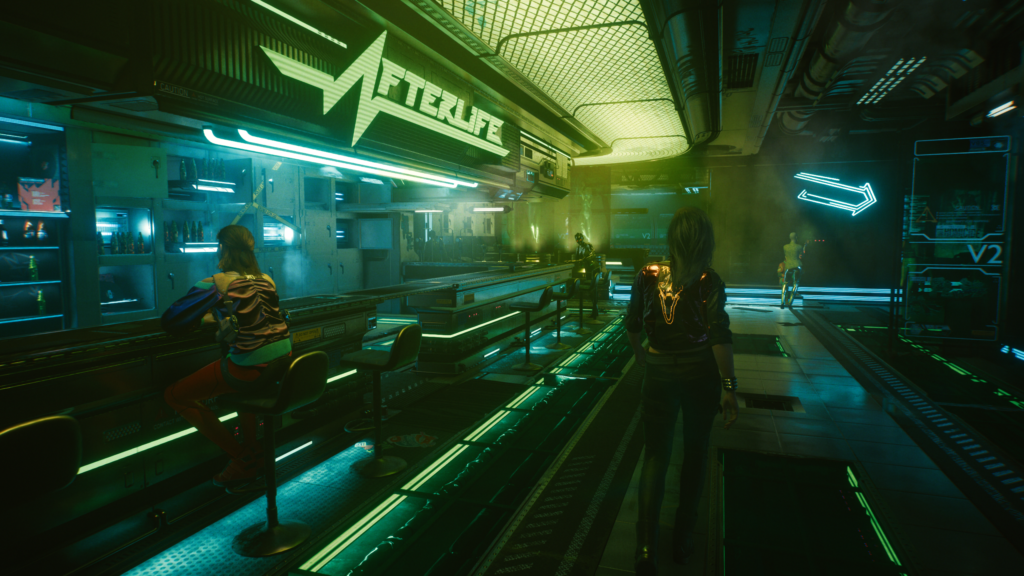
Even going back to days of old, a good example would GT Interactive and Monolith’s Blood 2. While that game had a myriad of issues, it was developed in about 11 months because of the studio’s unrealistic expectations for a 3D FPS game at the dawn of the millennium. It was a buggy mess that had content cut left, right and centre.
Activision and Singularity (which I’ll have a video on soon), where they gave Raven Software an ultimatum to finish the game in 9 months or not at all. They still had to lay off a portion of the staff.
EA was rightfully hounded by the wives and families in public for keeping staff working at all hours, all days and whenever they felt to finish products that should have been delayed, but didn’t to appease larger forces.
More recently the conversation has arisen with Rockstar and Naughty Dog, two massive studios with delays and years of development for Red Dead Redemption 2 and The Last of Us 2, still implementing crunch to finish the games to attain whatever goal was set by management.
Those games still sold by the millions and would have done so, regardless of when they released.
Crunch is inhuman. Crunch does not work. Countless examples online of going on a break, only to come back and notice that while tired, they coded something wrong which is why the game was bugged.
Cyberpunk 2077 should not have released in December of 2020. Maybe not even until 2022. But they couldn’t release it, because management, shareholders, the backlash for each delay from fans and a closing gap of the holiday season would squander any plans they had.
Well, after months of crunch, overworking employees and disregarding the health of them as well, all for money, they’ve fucked up so badly that it’s hopefully a wake-up call for everyone involved.
A wake-up call for investors in public traded companies that there are people working at them and they need to work in a place that won’t potentially kill them. Management, who really need to reconsider how their game studios are structured and why they have failed at such a catastrophic level.
But also, I hope this a wake up call to the fans to begin understanding how the sausage is made. Game development is not all rainbows, sunshine and good times. CDPR played you all for the chumps that you are, pretending to be ‘one of the people’, while in reality, they were merely running people into the ground so that you coughed up 60 quid on launch day or by pre-order.
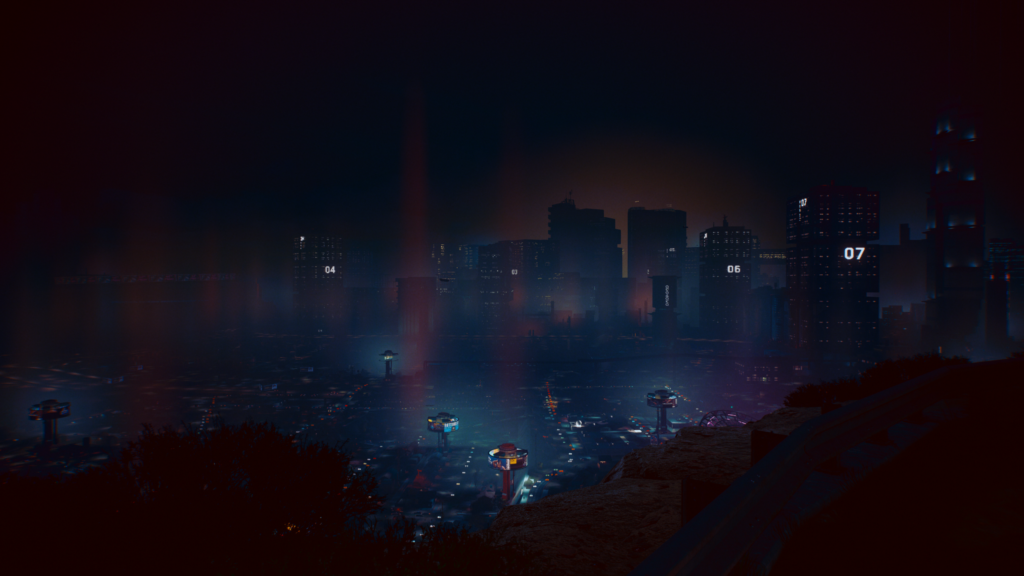
Every bright yellow, hard to read the statement about delays, specifically designed so that you looked away due to the harshness of colour on a phone screen. Addressing you as ‘gamers’, pulling a QA lead out of the dungeon to say that there’s “hundreds of hours of content”.
It’s a play by a massive corporation and ultimately, it blew up in their face. I’m hoping that Cyberpunk 2077’s level of fuck up will send some shockwaves through everyone to hopefully begin to understand that we need to hold the health and treatment of the developers at these massive studios up the light and hold management and publishers to a higher standard.
The culture the industry has made for itself and wrapped itself in is grotesque. It’s an issue with nerd culture as a whole if I’m honest. They aren’t your friends. You’re numbers to them. Make sure that you don’t fall for their shtick.
Have a favourite product, enjoy games, but please just begin to realise how bad game development is at various places and ensure that you make a stink about working conditions more than you do about whatever bullshit has you hot this week.
Conclusion
Look, even if CD Projekt Red ‘fix’ Cyberpunk 2077, the end product is still a limp action-RPG with a bland, dead world with all the problems that come with the genre still plaguing it, with no self-awareness to tackle those issues – they’re embedded into the game now.
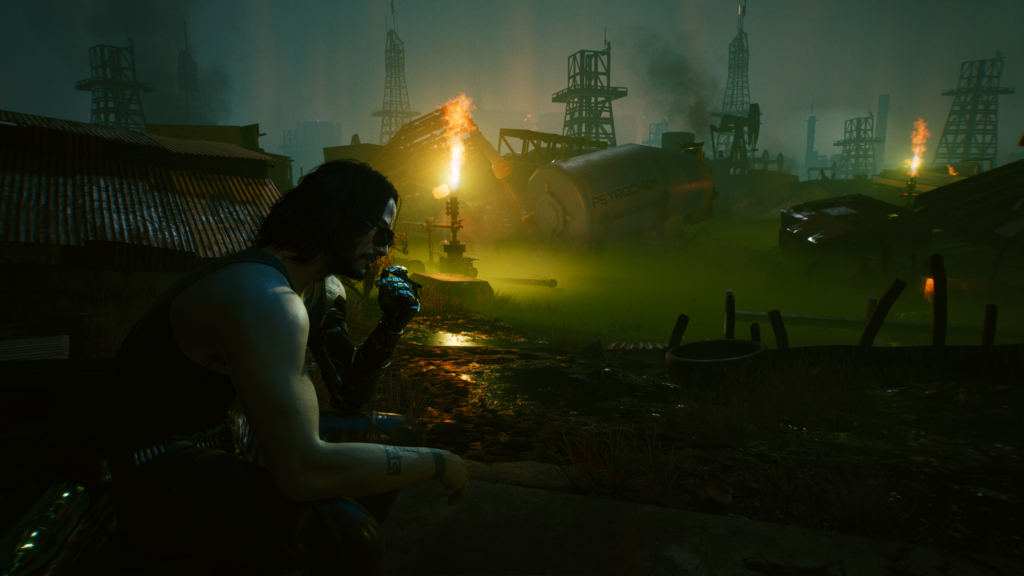
Missions, side-quests and every activity you do in the game that isn’t talking to folk is something seen before, something solved or masked via new systems in other popular games.
Cyberpunk 2077 is not a good game. It is an amalgamation of everything wrong with the industry and where it’s seemingly plateauing out at for the time being. It’s dull, has zero bites in any capacity and ultimately, ‘fixing it’ will reveal that it only has a few good storylines to carry its hobbled, disgusting body across its lifespan.
It’s a symptom of a larger issue with the industry.
I hope Cyberpunk 2077 is a wake-up call for CD Projekt Red, the industry and the audience. Maybe that’ll be the thing it manages to revolutionise because CD Projekt Red isn’t doing shit all else with this.